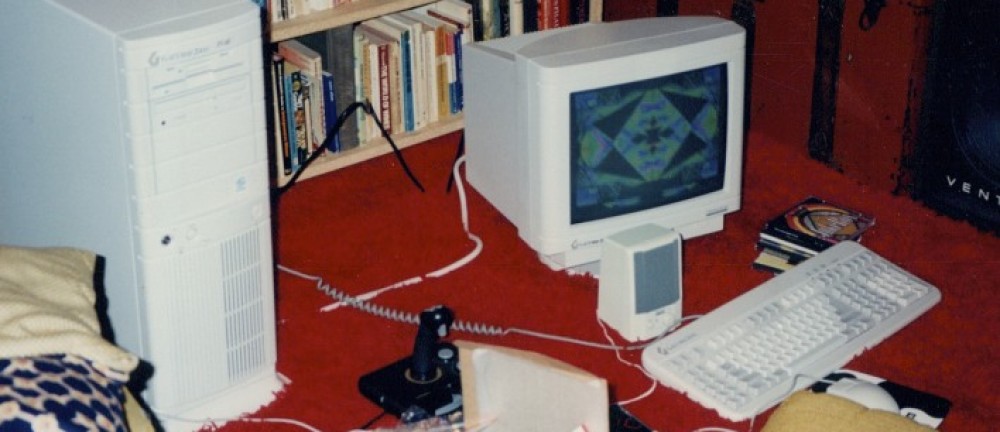I’m a fraud. I’ve convinced people that I know far more than I actually do. They seem to have bought it. By and large, this has served me well and I’ve embraced it.
This post was originally going to be “knowing enough math,” targeted at developers. That post will have to wait though, as I want to write a bit about the ways in which I try to force myself to encounter a breadth of subject matter and perspectives.
Let’s parse some terms first. I’m not sure we have a word to fully describe the notion I’m interested in. “Curiosity” seems to imply a certain degree of superfluousness or a lack of intellectual depth. “Polymath” is a term which, I suspect, cannot be used in describing oneself without sounding seriously pretentious. And that’s coming from me.
To me, “knowing enough” means having a depth of knowledge about a given topic, sufficient to allow you to know that there’s more to know. Donald Rumsfeld is, on the whole, a disastrously awful train wreck of a human being. That said, I give him credit for popularizing the notion of “known unknowns” – knowing the things you don’t know.
Much has been written about the dangers of a hyperpersonalized and siloed web. In addition to the detrimental impacts this has on our communities and relationships, it also means we’re less likely to be exposed to surprises or to be delighted by the unexpected.
Especially for those of us involved in technology, it’s exceedingly easy to live in this bubble. Daily stops at The Verge, Engadget, Daring Fireball and TechCrunch provide a set of very similar perspectives on the same news, and can easily eat up a day of casual browsing.
Fortunately, there exist some great options for being exposed to a diverse range of subjects. Traditional print publications like The Economist or The New Yorker provide both depth and breadth. I’m often surprised by the number of technology stories that I first learn about from the Economist, because they’re just far enough outside my daily bubble to have been totally off my radar.
The last few years have also seen the creation of a range of high quality “curation” websites, which aim to pull together interesting material from across the web. If you’re not already reading Kottke, Longform, and The Feature, I’d highly recommend it.
Things get really interesting when you take it one step further. Embrace the internet time-sink a little bit. Dive into wikipedia and build some subject matter expertise. Don’t just read the short article about flywheel energy storage (blog post coming soon!), check out the websites of the companies mentioned or take a look at the papers which are cited.
Conferences are another great way – though often more domain-specific – to get exposed to information which may have no immediate benefit for you. One of my favorite things about attending WWDC each year is the opportunity to attend sessions which have no relevance to work I’m doing at the moment. Sitting in a session about game optimization on iOS has no bearing on the work I do day-to-day. But inevitably, concepts I’m exposed to in sessions like this will circle back and become relevant in the future.
This is where the concept of “known unknowns” comes into play. When I sit in a random session at WWDC, I’m not aiming to learn everything there is to know about mobile OpenGL implementation or normalizing data from an accelerometer. What I do pick up on is the broad concepts – I’ll remember that, should I need to read data from an accelerometer at some point in the future, there are techniques for normalizing the data. From there, I can dive in and do the necessary research on specifics. The internet isn’t great at helping you take that first step – knowing that there’s a solution out there. Once you have an inkling of a solution, the internet can take over and provide the necessary depth.
I suspect none of this is interesting to most people. And, I suspect it comes across as deeply condescending to almost everyone. But the frequency with which I encounter people who eschew the acquisition knowledge on a variety of topics (sports, politics, entertainment, and so on) tells me that it’s a worth talking about. And, it’s the holidays, so nobody will likely read this anyways.
Happy New Year to you and yours.

inspiring… thanks for the site recomedations, I have often felt the same way.
Well, I read it and I agree, though I would not disparage curiosity (which may have killed the cat, but when I was teaching, I saw far too little curiosity about the world in my students who wanted to learn just enough to pass the course). I get a similar kick as you at WWDC from reading journals published by the Gerontological Society and the Association for Psychological Science. Both publish a lot of things not directly related to my work, but I often find articles a few degrees removed that I can related to my work. And even if I can’t, it’s interesting to learn about new things. Reading the Sunday New York Times, and the Times on Tuesday (with the Science section) are two other regular ways of taking in the broader world.
At the end you talked about people acquiring knowledge about entertainment… and earlier you talked about conferences… now all I can think about are conferences devoted to meryl streep with break out sessions on what she likes for breakfast/her favorite brand of kleenex.
I’d attend – she’s a national treasure!